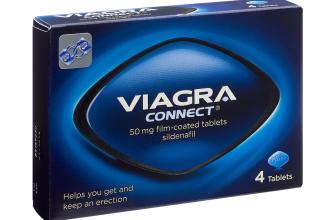25 mg Viagra is often prescribed as a starting dose for men experiencing erectile dysfunction. This lower dosage allows for a gradual introduction to the medication, minimizing potential side effects while still providing effective results for many individuals.
Remember, individual responses to medication vary significantly. Factors such as age, overall health, and other medications being taken all play a role in how effective 25 mg Viagra will be. Always consult your doctor before starting any new medication, including Viagra, to ensure it’s the right choice for your specific circumstances and health profile.
Before taking 25 mg Viagra, discuss potential side effects with your physician. Common side effects include headaches, flushing, and nasal congestion. Your doctor can help you manage these side effects and assess whether the benefits outweigh the risks for you. They can also help you understand how to take the medication correctly and what to expect.
Important Note: Viagra should not be taken with nitrates or certain other medications. It’s crucial to provide your doctor with a complete list of your current medications and health conditions to avoid dangerous interactions. Taking Viagra without proper medical guidance can be harmful.
Always follow your doctor’s instructions precisely regarding dosage and timing. Improper use can reduce effectiveness and potentially lead to unwanted side effects. Regular follow-up appointments with your physician are recommended to monitor your progress and adjust the treatment plan if needed.
- 25 mg Viagra: A Detailed Guide
- Understanding the Dosage
- Timing and Administration
- Potential Side Effects
- Interactions with Other Medications
- What to Expect
- Alternatives and Next Steps
- Understanding Viagra (Sildenafil)
- Dosage and Administration
- Possible Side Effects
- Who Shouldn’t Take Viagra?
- Viagra and Alcohol
- Seeking Medical Advice
- 25mg Dosage: When is it Appropriate?
- Effectiveness of 25mg Viagra
- Factors Affecting Efficacy
- Alternative Dosages and Considerations
- Potential Side Effects of 25mg Viagra
- Interactions with Other Medications
- Specific Medication Interactions
- 25mg Viagra and Alcohol Consumption
- Understanding the Interaction
- Recommended Approach
- Side Effect Awareness
- Alternatives to 25mg Viagra
- Consulting a Doctor Before Use
25 mg Viagra: A Detailed Guide
Start with your doctor. They’ll assess your health and determine if 25mg is the right dose for you. This is crucial for safe and effective treatment.
Understanding the Dosage
25mg Viagra is the lowest standard dose. It’s often prescribed for men new to Viagra or those with certain health conditions. The dosage might be adjusted based on individual responses and effectiveness. Don’t adjust your dose without consulting your physician.
Timing and Administration
Take Viagra about an hour before sexual activity. Avoid taking it with high-fat meals, as this can delay absorption. Follow your doctor’s instructions precisely for optimal results.
Potential Side Effects
Common side effects include headache, facial flushing, and indigestion. More serious side effects are rare but require immediate medical attention. Your doctor will explain these in detail and what to do if they occur.
Interactions with Other Medications
Viagra can interact with certain medications, including nitrates. Always inform your doctor about all medications, supplements, and herbal remedies you’re taking. This prevents potentially dangerous interactions.
What to Expect
Viagra helps achieve and maintain an erection, but it doesn’t increase libido. Sexual stimulation is still necessary. The effectiveness varies, and results may differ from person to person. Open communication with your doctor is key.
Alternatives and Next Steps
If 25mg isn’t effective, your doctor may adjust the dose or suggest alternative treatments. Remember, finding the right approach takes time and cooperation with your healthcare provider. Discuss any concerns or questions you have with them directly.
Understanding Viagra (Sildenafil)
Viagra, containing the active ingredient sildenafil, helps treat erectile dysfunction (ED) by increasing blood flow to the penis. It works by blocking an enzyme called PDE5, allowing for stronger and longer-lasting erections.
Dosage and Administration
The typical starting dose is 50 mg, taken as needed, about an hour before sexual activity. Your doctor may adjust the dose based on your response and health condition. Do not exceed the recommended dose. The medication is best taken on an empty stomach.
- Never take more than one 50 mg tablet in a 24 hour period.
- Always consult your physician before starting any new medication, including Viagra.
- Discuss potential drug interactions with your doctor, especially if you take nitrates or other heart medications.
Possible Side Effects
Common side effects include headache, facial flushing, nasal congestion, and indigestion. These are usually mild and temporary. More serious side effects are rare but include vision changes (blurred vision, blue-tinged vision) and prolonged erection (priapism). Seek immediate medical attention if you experience these.
Who Shouldn’t Take Viagra?
- Individuals with heart conditions should use caution and consult a cardiologist.
- People with severe liver or kidney disease should avoid Viagra.
- Those with a history of stroke or heart attack should discuss its use with their doctor.
- Men taking certain medications, particularly nitrates, should not take Viagra.
Viagra and Alcohol
While moderate alcohol consumption usually doesn’t significantly affect Viagra’s effectiveness, excessive alcohol intake can impair its action and increase the risk of side effects. Limit alcohol consumption when using Viagra.
Seeking Medical Advice
This information is for educational purposes only and does not replace professional medical advice. Always consult a doctor before using Viagra or any other medication to ensure its safe and appropriate use for your individual circumstances. They can assess your health and determine the correct dosage and suitability of the medication.
25mg Dosage: When is it Appropriate?
Your doctor will determine the right Viagra dosage for you based on your individual needs and health conditions. A 25mg dose is often prescribed for:
- Men new to Viagra: Starting with a lower dose minimizes potential side effects.
- Men with certain health conditions: Those with liver or kidney problems, or taking specific medications, may require a reduced dose to prevent complications.
- Men over 65: Older men may metabolize medication more slowly, making a lower starting dose advisable.
- Men with a history of cardiovascular issues: A lower dosage can help mitigate the risk of cardiovascular side effects.
The 25mg dose may also be appropriate if a higher dose (like 50mg or 100mg) proved to be too strong or caused unacceptable side effects. Your doctor will carefully monitor your response to the medication and may adjust the dose as needed.
Remember, this information is for educational purposes only and does not substitute professional medical advice. Always consult your doctor before starting any medication, including Viagra, to ensure it’s the right choice for you and to discuss potential risks and benefits.
- Discuss your medical history: Provide complete information about existing conditions and medications.
- Follow your doctor’s instructions precisely: Adhere to the prescribed dosage and frequency.
- Report side effects immediately: Contact your doctor if you experience any adverse effects.
Effectiveness of 25mg Viagra
25mg Viagra is often a suitable starting dose for many men. Its efficacy depends on several individual factors, including age, overall health, and the specific cause of erectile dysfunction. Clinical studies show that a significant percentage of men experience successful erections with this dosage. However, response varies.
Factors Affecting Efficacy
Body weight, metabolism, and the presence of other health conditions can influence how well 25mg Viagra works. Some men may find this dose insufficient, while others may experience side effects. If 25mg proves inadequate, a physician may suggest increasing the dosage to 50mg or 100mg. Conversely, if side effects occur, a lower dose or alternative treatment might be recommended.
Alternative Dosages and Considerations
It’s crucial to consult a doctor before starting or adjusting Viagra dosage. They can assess your health and determine the most appropriate dose for you, minimizing risks and maximizing benefits. Remember that Viagra interacts with certain medications, so discussing your entire medication list with your doctor is paramount. They will provide personalized advice, considering your unique situation.
Potential Side Effects of 25mg Viagra
While 25mg Viagra is generally well-tolerated, some men experience side effects. Common side effects include headache, facial flushing, nasal congestion, and indigestion. These are usually mild and temporary.
Less common, but still possible, side effects include blurry vision, dizziness, and changes in hearing. If you experience any sudden changes in vision or hearing, seek immediate medical attention.
Rarely, Viagra can cause more serious side effects such as prolonged erection (priapism) or a heart attack. Priapism requires immediate medical help. Heart attack risk is increased in men with pre-existing heart conditions.
Before taking Viagra, discuss your medical history with your doctor, particularly any heart problems, low blood pressure, or eye conditions. This allows them to assess your suitability and minimize potential risks.
Remember, this information is not a substitute for professional medical advice. Always consult your doctor before starting any new medication, including Viagra.
Interactions with Other Medications
Always inform your doctor about all medications you are currently taking, including over-the-counter drugs, supplements, and herbal remedies. This includes nitrates (used for chest pain), alpha-blockers (used for high blood pressure or enlarged prostate), and certain antifungals. Combining Viagra with these medications can significantly lower blood pressure, potentially leading to dizziness, fainting, or even heart attack.
Specific Medication Interactions
Certain protease inhibitors (used to treat HIV) can increase Viagra’s concentration in your bloodstream, potentially leading to side effects. Similarly, some medications for high blood pressure or heart conditions, particularly those affecting the heart’s rhythm, may interact negatively. Your doctor can assess the risks and advise on suitable alternatives or dosage adjustments if necessary. Always disclose your complete medical history to your physician before starting Viagra.
Don’t hesitate to discuss any concerns with your doctor or pharmacist. They are best equipped to help you manage potential drug interactions safely and effectively.
25mg Viagra and Alcohol Consumption
Mixing 25mg Viagra with alcohol can significantly increase the risk of side effects. Avoid combining them, especially excessive alcohol consumption. A moderate amount of alcohol might be tolerated by some individuals, but this varies greatly depending on factors like age, health, and metabolism. Always consult your doctor before mixing medications and alcohol.
Understanding the Interaction
Alcohol can lower blood pressure, a similar effect to Viagra. This combined effect can lead to dangerously low blood pressure, dizziness, fainting, or even more serious cardiovascular complications. The severity depends on the amount of alcohol consumed and individual sensitivity to both substances.
Recommended Approach
For safe use, completely avoid alcohol while taking Viagra. If you anticipate drinking, discuss alternative erectile dysfunction management options with your physician. They can help you find a strategy that prioritizes your health and well-being.
Side Effect Awareness
Common side effects of Viagra, such as headache, flushing, and nasal congestion, are potentially exacerbated by alcohol. Severe side effects like vision changes or prolonged erection (priapism) are also more likely when alcohol is involved. Seek immediate medical attention if you experience these symptoms.
Alternatives to 25mg Viagra
Consider Cialis (tadalafil) for longer-lasting effects, potentially lasting up to 36 hours. This makes it a suitable alternative if consistent performance over a longer period is desired.
Alternatively, Levitra (vardenafil) offers a similar mechanism of action to Viagra but may have a slightly different onset and duration of effect. It’s worth discussing with your doctor to see if it’s a better fit for your needs.
For men who prefer a non-pill option, injections of alprostadil directly into the penis can be effective. This method provides a rapid onset of action, but it requires training and may cause side effects.
Vacuum erection devices are another non-pill option. These devices create a vacuum around the penis to help achieve an erection. They are generally safe but require some manual dexterity.
Lifestyle changes, such as weight loss, exercise, and dietary improvements, can significantly improve erectile function. These adjustments often enhance the effectiveness of medication when used concurrently.
Penile implants are a surgical option for men with severe erectile dysfunction. This involves implanting rods into the penis to provide rigidity. It’s a permanent solution requiring careful consideration and a consultation with a specialist.
| Alternative | Mechanism | Duration of Effect | Administration |
|---|---|---|---|
| Cialis (Tadalafil) | Phosphodiesterase-5 inhibitor | Up to 36 hours | Oral |
| Levitra (Vardenafil) | Phosphodiesterase-5 inhibitor | 4-5 hours | Oral |
| Alprostadil Injection | Direct vasodilation | 30-60 minutes | Injection |
| Vacuum Erection Device | Mechanical | Variable | External device |
| Penile Implant | Surgical | Permanent | Surgical procedure |
Remember to consult a doctor before starting any new medication or treatment for erectile dysfunction. They can help determine the best course of action based on your individual health profile and preferences.
Consulting a Doctor Before Use
Always consult your doctor before using Viagra or any medication for erectile dysfunction. Your physician can assess your overall health and determine if Viagra is safe and appropriate for you. They’ll consider your medical history, including any existing conditions like heart problems, high blood pressure, or liver and kidney disease.
This consultation helps minimize potential risks. Certain medications interact negatively with Viagra, so your doctor will review your current prescriptions and over-the-counter drugs. They can also help you understand potential side effects and how to manage them. This personalized approach ensures your safety and efficacy.
Discuss your expectations and concerns openly. Your doctor will provide accurate information about Viagra’s effectiveness and limitations, answering any questions you may have. This proactive approach ensures you make informed decisions about your treatment.
Don’t rely on online information alone. A face-to-face consultation provides a tailored assessment, crucial for your health and well-being. Schedule an appointment today to discuss your options.






